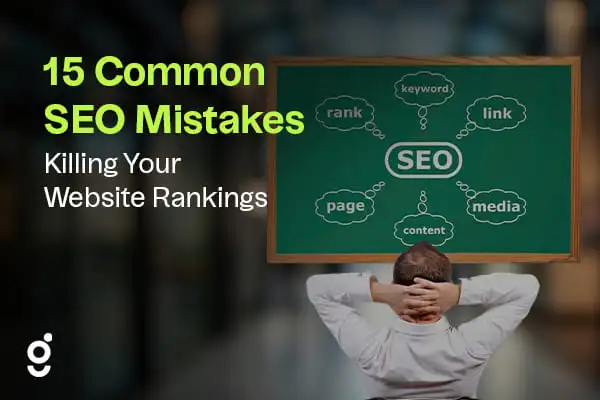Tag Optimization: Boost Your Website’s SEO with HTML Tags
HTML Tags for SEO: Unlocking the Power of Title, Meta, Heading, and Alt Tags. Enhance your website’s visibility and search engine rankings with effective HTML tags for SEO.
Optimize title tags, meta tags, heading tags, and alt tags to improve your website’s performance and attract organic traffic. Boost your SEO efforts with strategic HTML tag optimization techniques.
Search engine optimization (SEO) is an essential part of any website’s success. SEO is a set of techniques used to improve the visibility of a website in search engine results pages (SERPs). SEO involves optimizing your website’s content and structure to make it easier for search engine crawlers to “understand” your website.
One of the key elements of SEO is HTML tags. HTML tags are snippets of code that provide information about your website’s content. They allow search engines to better understand what your website is about and how it should be indexed and ranked. In this blog post, we’ll discuss how to use HTML tags to optimize your website for SEO.

What Are HTML Tags?
HTML tags are pieces of code that provide information about the content of a web page. They’re used to structure and format web pages, and they’re also used to provide more information about the content of the page.
HTML tags are divided into two categories: block-level tags and inline tags. Block-level tags are used to structure the page, while inline tags are used to provide more information about the content of the page.
Why Are HTML Tags Important for SEO?
HTML tags are important for SEO because they provide information about the content of a web page that search engines use to index and rank web pages. HTML tags tell search engines what the content of the page is about, what the page is trying to do, and how the page should be presented to users.
Search engines use HTML tags to identify the most relevant web pages for a particular search query. By using the right HTML tags, you can optimize your website for SEO and ensure that it is listed in the search engine results pages (SERPs).
Common HTML Tags for SEO
There are several HTML tags that are used for SEO. These tags include the title tag, header tags, meta tags, and alt tags. Let’s take a look at each of these tags in more detail.
1. Title Tag
The title tag is one of the most important HTML tags for SEO. The title tag is the text that appears on the search engine results page (SERP) when a user searches for a particular keyword or phrase. The title tag should be descriptive and concise, and it should include the main keyword or phrase that you’re targeting. For E.g,
<head> <title>Your website title</title> </head>
2. Header Tags
Header tags are HTML tags that are used to structure the content of a web page. They’re also used to provide more information about the content of the page.
Header tags are divided into two types: H1 tags and H2 tags. H1 tags are used to indicate the main heading of a web page, while H2 tags are used to indicate subheadings.
Using header tags can help search engines better understand the structure of your web page and the topics that it covers. This can help improve your website’s ranking in the SERPs. For E.g,
<h1>Main Heading</h1>
<h2>Subheading</h2>
<h3>Sub-subheading</h3>
3. Meta Tags
Meta tags are HTML tags that provide more information about a web page. Meta tags are used to provide information about the content of the page, including the page’s title, description, and keywords.
Meta tags are important for SEO because they provide information that can help search engines better understand the content of the page. This can help improve the ranking of the page in the SERPs. For E.g,
<meta name=”description” content=”Your Content”>
<meta name=”keywords” content=”HTML tags, SEO, website optimization, meta tags, title tags, search engine visibility, rankings”>
4. Alt Tags
Alt tags are HTML tags that provide information about an image. Alt tags are used to provide a text description of an image, which can help search engines better understand the content of the page.
Using alt tags can help improve the ranking of a web page in the SERPs, as well as help users who are visually impaired to better understand the content of the page. For E.g,
The Importance of Local SEO for Small Businesses
How to Optimize Your Website with HTML Tags
Now that you understand the importance of HTML tags for SEO, let’s look at how you can optimize your website with HTML tags.
1. Use Descriptive Title Tags
The title tag is one of the most important HTML tags for SEO. Make sure that your title tags are descriptive and include the main keyword or phrase that you’re targeting. Including the keyword or phrase in the title tag can help improve the ranking of the page in the SERPs.
2. Use Header Tags to Structure Your Content
Header tags are used to structure the content of a web page. Using header tags can help search engines better understand the structure of your web page and the topics that it covers. This can help improve your website’s ranking in the SERPs.
3. Use Meta Tags to Provide More Information
Meta tags are used to provide more information about a web page. Make sure that your meta tags are descriptive and include the main keyword or phrase that you’re targeting. This can help improve the ranking of the page in the SERPs.
4. Use Alt Tags to Describe Images
Alt tags are used to provide a text description of an image. Using alt tags can help improve the ranking of a web page in the SERPs, as well as help users who are visually impaired to better understand the content of the page.
Conclusion
HTML tags are an important element of SEO. By using the right HTML tags, you can optimize your website for SEO and ensure that it is listed in the search engine results pages (SERPs).
Using descriptive title tags, header tags, meta tags, and alt tags can help improve the ranking of a web page in the SERPs. Following the tips outlined in this blog post can help you optimize your website for SEO and ensure that it is listed in the SERPs.
About the Author
This blog post was written by Growly Digital, an SEO expert and content marketer at SEO blog. Growly Digital has extensive experience in SEO, content marketing, and digital marketing. He has helped many clients improve their rankings in the SERPs and increase their online visibility.
Ready to boost your SEO? Implement these HTML tag optimizations now!
Frequently Asked Questions
What are HTML tags in SEO?
HTML tags are elements used in the coding of a web page to structure and present its content. They play a crucial role in defining the hierarchy, formatting, and organization of the website’s content.
How do HTML tags impact website SEO?
HTML tags provide important signals to search engines about the content and relevance of a web page. Properly optimized HTML tags can help search engines understand and index your website’s content more effectively, leading to improved visibility in search engine results.
Which HTML tags are important for SEO optimization?
Several HTML tags are essential for SEO optimization, including title tags, meta description tags, heading tags (H1-H6), image alt tags, and anchor tags. Each tag serves a specific purpose in conveying information to search engines and users.
How can I use title tags to improve my website's SEO?
Title tags are used to define the title of a web page. To optimize them for SEO, it’s important to include relevant keywords and provide a concise, compelling description of the page’s content. Each page on your website should have a unique and descriptive title tag.
What is the role of meta tags in search engine optimization?
Meta tags provide additional information about a web page, such as its description and keywords, to search engines. While meta tags don’t directly impact rankings, they can influence click-through rates and provide concise summaries of your web page’s content in search engine results.
Are heading tags (H1, H2, etc.) important for SEO?
Heading tags (H1, H2, etc.) play a vital role in organizing and structuring the content on your web page. They provide a hierarchy and indicate the importance of different sections. Properly using heading tags with relevant keywords can improve the readability and SEO optimization of your content.
How should I use alt tags for images to optimize my website?
Alt tags, also known as alternative text, are used to describe the content of an image. To optimize your website, ensure that each image has a descriptive alt tag that accurately represents the image’s content. Using relevant keywords sparingly in alt tags can also contribute to SEO optimization.
Can HTML tags affect my website's search engine rankings?
Yes, HTML tags can have an impact on your website’s search engine rankings. Optimized tags, such as title tags, meta tags, heading tags, and alt tags, provide valuable information to search engines, improving their understanding of your content and increasing the likelihood of higher rankings.
Should I use keywords in my HTML tags for better SEO?
Including relevant keywords in your HTML tags, such as title tags and heading tags, can help improve the SEO optimization of your website.
However, it’s important to use keywords naturally and avoid keyword stuffing, as search engines prioritize high-quality and user-friendly content.
How can I optimize my website's HTML tags for improved visibility on search engines?
To optimize your website’s HTML tags, ensure that you use unique and descriptive title tags for each page, write compelling meta descriptions, use relevant heading tags to structure your content, include descriptive alt tags for images, and ensure that your tags accurately reflect the page’s content and keywords.
Additionally, focus on creating high-quality, valuable content that aligns with user intent, as this plays a crucial role in SEO optimization.




